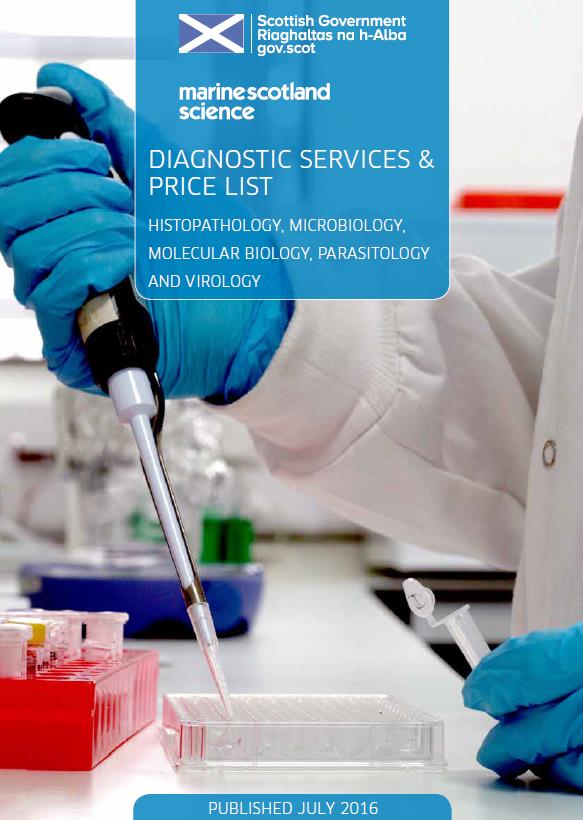Marine
Who you gonna call? Diagnostics!
September 8, 2017 by Marine Scotland Communications No Comments | Category Marine Directorate Science
 You might not know this, but Marine Scotland is classified as the Scottish National Reference Laboratory (NRL) for crustacean, fish and mollusc diseases within the European Union.
You might not know this, but Marine Scotland is classified as the Scottish National Reference Laboratory (NRL) for crustacean, fish and mollusc diseases within the European Union.
So what does that mean? Well, in practice it means that we have expertise and knowledge of a wide range of techniques and methods that can be used to diagnose crustacean, fish and mollusc diseases. We also have achieved ISO/IEC 17025 accreditation for several of our pathogen identification methods.
Our scientists provide this expertise to both Marine Scotland’s Fish Health Inspectorate, whose role is to maintain the high health status of crustaceans, fish and molluscs within Scotland, but we also offer the service to external companies, as a commercial service.
The expertise we offer for crustaceans, fish and molluscs includes:
Microbiology: the study of all living organisms that are too small to be visible with the naked eye. This involves identifying aquatic pathogens – bacterium, virus, or other microorganism that can cause disease – and we have an active interest in emerging crustacean, fish and shellfish pathogens, and we are continually developing and improving identification methods.
Histology and Histopathology: the study of the microscopic structure of tissues. This involves a number of different steps and our scientists are responsible for detailed pathological analysis and reporting for diagnostic material, research trials and environmental monitoring. In addition, we have an extensive physical and electronic slide archive containing reference material for a wide range of diseases and conditions in many aquatic species.
Molecular Genetics: the study of the structure and function of genes at a molecular level. A range of molecular methods can be employed to detect and/or identify either DNA or RNA sequences of specific target material. Molecular methods are extremely specific, provide high levels of sensitivity and test results are obtained in a rapid fashion.
Parasitology: the study of parasitic organisms, which involves using a range of diagnostic services such as sample screening, pathogen identification and genetic sequence analysis to identify parasites.
Further Information
- Diagnostics Services brochure for more details and costs
- Read more about Histology and Histopathology at Marine Scotland
Tags: commerical services, research, science


Leave a comment